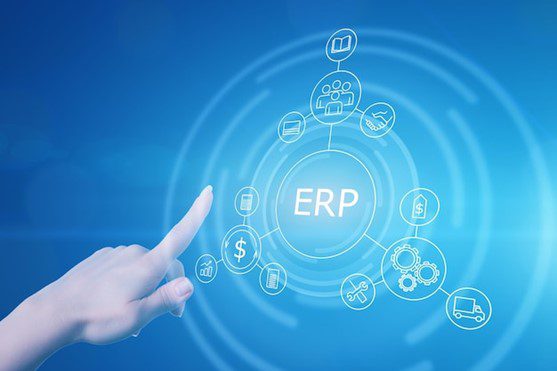
Understanding ERP Systems
As businesses continue to grow in complexity and scale, the need for efficient management systems becomes increasingly crucial. Enterprise Resource Planning (ERP) systems have emerged as a comprehensive solution to integrate various business processes and functions into a unified platform. An ERP system enables organizations to streamline operations, improve decision-making, and enhance overall productivity. Understanding the fundamental concept of ERP systems is essential for businesses looking to leverage these powerful tools effectively.
ERP systems are designed to centralize and automate essential business functions, including finance, human resources, supply chain management, and customer relationship management. By consolidating disparate processes into a single, cohesive platform, ERP systems provide a holistic view of an organization’s operations, enabling better coordination and communication across departments. This integration of data and processes facilitates more informed decision-making, as it eliminates the need to reconcile information from multiple sources.
The modular nature of ERP systems allows businesses to choose and customize specific modules based on their unique requirements. Whether it’s inventory management, production planning, or sales and marketing, ERP systems offer scalable solutions that can adapt to evolving business needs. With the ability to standardize processes and data across the organization, ERP systems lay the foundation for improved efficiency, cost savings, and enhanced competitiveness in the marketplace.
The Importance of Quality Management in ERP Implementation
Quality management plays a pivotal role in the successful implementation and operation of ERP systems. As businesses strive to optimize their processes and deliver superior products and services, quality management principles become inherent to their operational strategies. In the context of ERP implementation, ensuring the highest standards of quality is essential to maximizing the system’s potential and achieving tangible business benefits.
Effective quality management within an ERP environment involves establishing robust processes for data integrity, system reliability, and user proficiency. It encompasses the implementation of best practices, adherence to industry standards, and continuous improvement initiatives to uphold the quality of the ERP system and its associated processes. By emphasizing quality management, organizations can mitigate risks, minimize errors, and drive sustained performance improvements across all functional areas.
In addition to operational excellence, quality management in ERP implementation fosters a culture of accountability, transparency, and innovation within the organization. It encourages cross-functional collaboration, promotes a customer-centric mindset, and instills a sense of ownership among employees. By prioritizing quality at every stage of the ERP lifecycle, businesses can enhance their reputation, build customer trust, and gain a competitive edge in the market.
Challenges in Implementing XoroERP
While the benefits of implementing an ERP system like XoroERP are substantial, organizations often encounter various challenges throughout the implementation process. These challenges can range from technical complexities and resource constraints to resistance to change and organizational silos. Recognizing and addressing these challenges is crucial to ensuring a smooth and successful deployment of XoroERP within an organization.
One of the primary challenges in implementing XoroERP is the complexity of data migration and system integration. Transferring existing data from legacy systems and aligning it with the new ERP platform requires meticulous planning, data cleansing, and validation to prevent data discrepancies and inconsistencies. Additionally, integrating XoroERP with other third-party applications and systems presents interoperability challenges that demand careful configuration and testing.
Another common challenge is the resistance to change among employees who are accustomed to existing processes and workflows. Introducing a new ERP system like XoroERP often triggers concerns about job security, skill gaps, and the perceived disruption of daily routines. Overcoming this resistance necessitates effective change management strategies, comprehensive training programs, and proactive communication to engage and empower employees throughout the transition.
Organizational readiness and resource allocation pose further challenges in XoroERP implementation. Ensuring that the organization’s infrastructure, IT capabilities, and human resources are aligned to support the implementation efforts is critical for a seamless deployment. Limited budget, time constraints, and competing priorities can also impede the implementation process, requiring careful resource planning and stakeholder alignment to overcome these obstacles.
Overcoming Implementation Challenges
Addressing the challenges associated with XoroERP implementation requires a strategic and collaborative approach that encompasses technical, organizational, and cultural dimensions. To overcome data migration and integration complexities, organizations can engage expert consultants and leverage data migration tools to ensure accurate and efficient data transfer. Thorough testing and validation procedures are essential to verify the integrity and reliability of data within the XoroERP system.
To mitigate resistance to change, organizations should invest in change management initiatives that focus on communication, training, and stakeholder engagement. By involving employees in the decision-making process, providing clear insights into the benefits of XoroERP, and offering continuous support, organizations can foster a positive attitude towards the new system and create a culture of adaptability and innovation.
Organizational readiness can be bolstered through effective project planning, resource allocation, and risk management practices. Engaging key stakeholders, securing executive sponsorship, and aligning the implementation timeline with the organization’s strategic objectives can enhance overall readiness and commitment to the XoroERP implementation. Additionally, establishing a cross-functional implementation team and assigning dedicated resources can ensure a coordinated and cohesive effort towards successful deployment.
Optimizing Inventory Management with XoroERP
Inventory management is a critical aspect of business operations, especially for organizations involved in manufacturing, distribution, or retail. XoroERP offers robust capabilities for optimizing inventory management, providing real-time visibility into inventory levels, demand forecasting, and stock replenishment. By leveraging the features and functionalities of XoroERP, organizations can streamline their inventory processes, reduce carrying costs, and improve overall supply chain efficiency.
One of the key benefits of using XoroERP for inventory management is the ability to centralize inventory data and automate inventory tracking. With a unified database and integrated workflows, XoroERP enables organizations to maintain accurate inventory records, track inventory movements, and monitor stock levels across multiple locations. This centralized approach minimizes the risk of stockouts, overstocking, and inventory discrepancies, leading to improved inventory accuracy and availability.
Furthermore, XoroERP facilitates demand forecasting and inventory planning through advanced analytics and reporting capabilities. By analyzing historical sales data, market trends, and customer demand patterns, organizations can make informed decisions regarding stock replenishment, order quantities, and inventory optimization. This proactive approach to inventory management helps businesses align their supply with demand, minimize excess inventory, and enhance customer satisfaction through timely order fulfillment.
In addition to operational efficiencies, XoroERP supports inventory cost management by enabling organizations to track costs associated with procurement, storage, and obsolescence. By implementing automated cost calculations, inventory valuation methods, and inventory turnover analysis, businesses can gain a comprehensive understanding of their inventory-related expenses and make data-driven decisions to optimize cost-effectiveness and profitability.
Streamlining Accounting Processes with XoroERP
Accurate and efficient financial management is essential for the long-term success and sustainability of any organization. XoroERP offers comprehensive features for streamlining accounting processes, allowing businesses to manage financial transactions, reporting, and compliance with greater precision and control. By integrating accounting functions within the ERP system, organizations can enhance visibility, accuracy, and accountability across their financial operations.
XoroERP’s accounting modules encompass core financial activities such as general ledger management, accounts payable, accounts receivable, and financial reporting. These modules are designed to automate routine accounting tasks, streamline transaction processing, and ensure the accuracy and timeliness of financial data. By centralizing financial information and workflows, XoroERP enables organizations to consolidate their accounting processes and eliminate redundant manual tasks.
With built-in financial controls and real-time financial reporting capabilities, XoroERP empowers organizations to maintain compliance with regulatory standards, monitor financial performance, and make informed decisions based on accurate financial data. The system’s ability to generate customizable financial reports, balance sheets, and income statements provides decision-makers with a comprehensive view of the organization’s financial position, cash flow, and profitability, enabling proactive financial management and strategic planning.
Furthermore, XoroERP facilitates seamless integration between accounting and other functional areas, such as procurement, inventory management, and sales, ensuring that financial data is automatically updated and reflected across the entire system. This integration minimizes data silos, enhances data consistency, and enables a holistic view of the organization’s financial health, fostering greater transparency and efficiency in financial operations.
Leveraging XoroERP for Quality Management
Quality management is a cornerstone of XoroERP’s value proposition, encompassing features and functionalities that enable organizations to uphold the highest standards of quality across their operational processes. XoroERP’s quality management capabilities encompass quality planning, control, assurance, and improvement, providing a comprehensive framework for organizations to optimize product and service quality, meet regulatory requirements, and drive continuous improvement initiatives.
The quality planning features of XoroERP enable organizations to define quality standards, specifications, and inspection criteria for products, processes, and services. By establishing clear quality objectives and requirements, organizations can align their operations with customer expectations, industry standards, and regulatory guidelines, ensuring that quality considerations are embedded into every aspect of their business processes.
XoroERP’s quality control functionalities enable organizations to monitor and validate product and process quality through inspection, testing, and non-conformance management. By implementing systematic quality checks and real-time quality monitoring, organizations can identify and address deviations from quality standards, mitigate quality-related risks, and proactively resolve quality issues before they impact customer satisfaction or operational efficiency.
Quality assurance within XoroERP encompasses the implementation of quality management systems, documentation, and compliance with quality standards and certifications. The system provides tools for managing quality documentation, conducting audits, and ensuring adherence to quality policies and procedures, fostering a culture of accountability, transparency, and continuous improvement in quality management practices.
Furthermore, XoroERP’s quality improvement features support organizations in analyzing quality performance, identifying root causes of quality issues, and implementing corrective and preventive actions to drive ongoing quality enhancement. By leveraging statistical process control, trend analysis, and quality improvement initiatives within XoroERP, organizations can continuously elevate their quality standards, reduce defects, and enhance customer satisfaction and loyalty.
The Benefits of Xorosoft ERP Solution
Xorosoft ERP presents a myriad of benefits for organizations seeking to modernize and optimize their business operations. As a comprehensive and integrated solution, Xorosoft ERP offers a range of advantages that span across functional areas, operational efficiency, and strategic decision-making. By leveraging the capabilities of Xorosoft ERP, organizations can realize tangible benefits that contribute to their long-term growth and competitiveness in the market.
One of the primary benefits of Xorosoft ERP is its ability to streamline business processes and improve operational efficiency. The system’s integrated modules for finance, human resources, supply chain management, and customer relationship management enable organizations to consolidate their processes, eliminate data silos, and automate routine tasks, leading to enhanced productivity, reduced operational costs, and accelerated response times.
Xorosoft ERP facilitates better decision-making through real-time data visibility and advanced analytics capabilities. By providing comprehensive insights into key performance indicators, operational metrics, and financial performance, the system equips decision-makers with the information they need to make informed, data-driven decisions that drive business growth, mitigate risks, and capitalize on emerging opportunities in the market.
Furthermore, Xorosoft ERP fosters greater collaboration and communication across the organization through its integrated platform. By connecting departments, teams, and stakeholders through a centralized system, Xorosoft ERP promotes cross-functional synergy, knowledge sharing, and alignment of goals and objectives, fostering a cohesive and agile organizational culture that is responsive to change and innovation.
The scalability and flexibility of Xorosoft ERP enable organizations to adapt to evolving business needs and market dynamics. Whether it’s expanding into new markets, introducing new product lines, or accommodating changes in regulatory requirements, Xorosoft ERP provides the agility and versatility to scale operations, customize workflows, and integrate new functionalities, ensuring that organizations can stay ahead of the curve and remain competitive in a dynamic business environment.
Training and Support for XoroERP Implementation
Effective training and support are integral components of a successful XoroERP implementation, ensuring that employees, stakeholders, and end users are equipped with the knowledge and skills required to leverage the system effectively. Xorosoft offers comprehensive training and support programs designed to empower organizations throughout the implementation process and beyond, enabling them to maximize the value and impact of XoroERP within their operations.
Xorosoft’s training programs are tailored to address the specific needs and requirements of organizations at various stages of the implementation lifecycle. From initial user training and system orientation to advanced configuration and customization workshops, Xorosoft’s training curriculum covers a wide spectrum of topics that cater to different user roles, functional areas, and system modules, ensuring that organizations can build a proficient and confident user base for XoroERP.
In addition to structured training sessions, Xorosoft provides extensive documentation, knowledge resources, and self-paced learning materials that enable users to access on-demand support and guidance as they navigate the XoroERP system. This self-service approach to learning empowers users to explore the system at their own pace, troubleshoot issues, and deepen their understanding of XoroERP’s functionalities, fostering a culture of continuous learning and proficiency development.
Furthermore, Xorosoft offers dedicated support services to organizations throughout the implementation process and post-implementation phase, ensuring that any technical, functional, or operational challenges are promptly addressed and resolved. The support team comprises experienced consultants and technical experts who collaborate closely with organizations to provide personalized assistance, troubleshooting, and best practice recommendations, enabling organizations to overcome obstacles and optimize their use of XoroERP.
Conclusion
In conclusion, mastering quality management and effectively navigating the challenges of implementing XoroERP as your ultimate ERP system is essential for organizations seeking to achieve operational excellence, agility, and competitive advantage in today’s dynamic business landscape. By understanding the fundamental concepts of ERP systems, recognizing the importance of quality management, and addressing the challenges associated with XoroERP implementation, organizations can unlock the full potential of the system and realize a multitude of benefits across their business functions.
From optimizing inventory management and streamlining accounting processes to leveraging XoroERP for quality management and embracing comprehensive training and support, Xorosoft ERP solution offers a robust and integrated platform that empowers organizations to drive efficiency, innovation, and growth. With its scalable, flexible, and collaborative capabilities, Xorosoft ERP enables organizations to adapt to change, make informed decisions, and elevate their operational performance, positioning them for sustained success and resilience in a rapidly evolving business environment.
To experience the transformative power of Xorosoft ERP firsthand and discover how it can revolutionize your business operations, I encourage you to book a demo with Xorosoft today. Embrace the future of ERP solutions with XoroERP and propel your organization towards a new era of efficiency, quality, and success.









